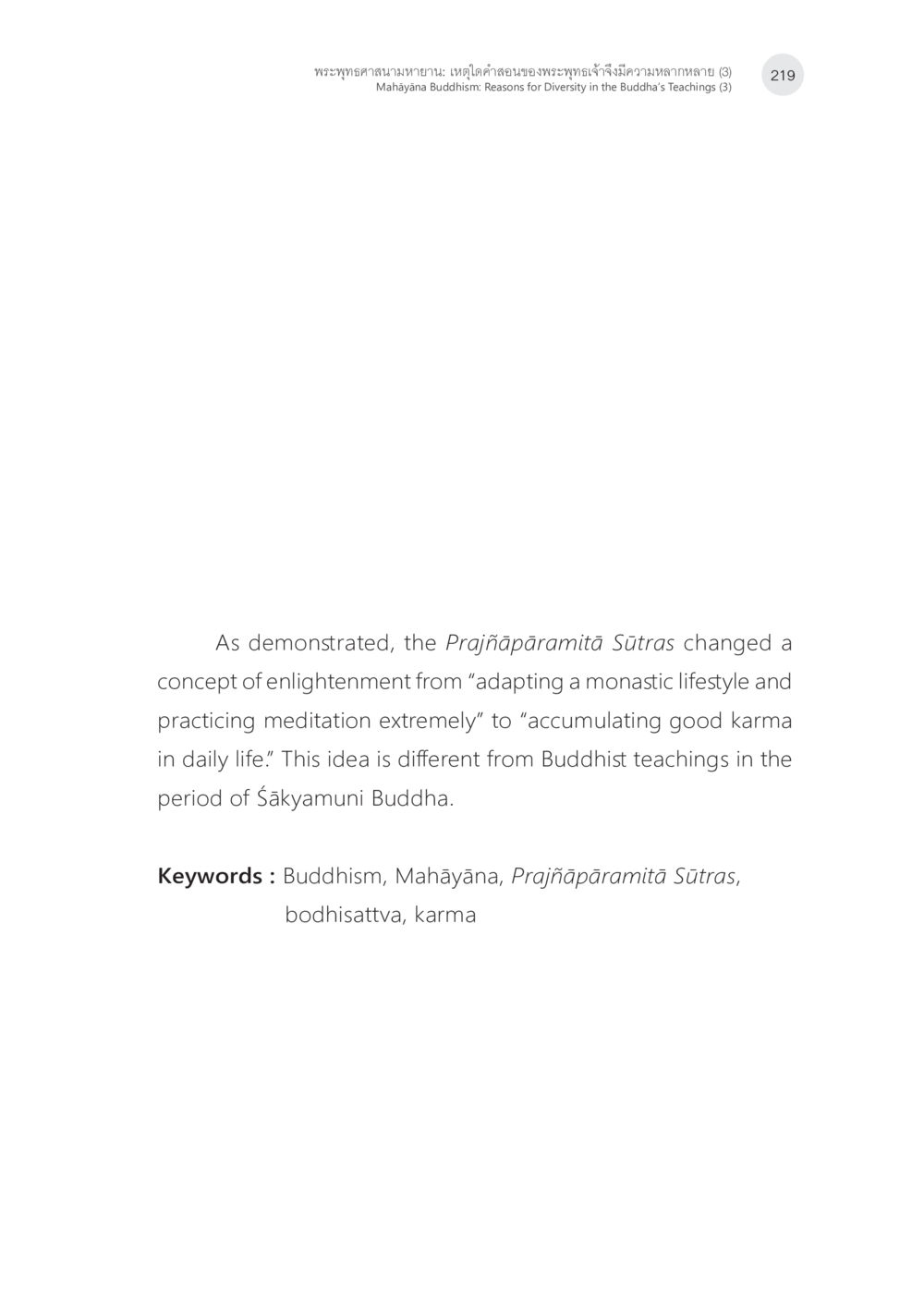The Shift in Enlightenment Concept in Prajñāpāramitā Sūtras : หน้า 5/21
พระพุทธศาสนามหายาน: เหตุใดคำสอนของพระพุทธเจ้าจึงมีความหลากหลาย (3) : หน้า 5/21 Explore how the Prajñāpāramitā Sūtras transformed the concept of enlightenment from monasticism to daily good karma in Buddhism.
0 ครั้ง

สรุปเนื้อหา
The Prajñāpāramitā Sūtras redefined the concept of enlightenment in Buddhism, moving away from the traditional focus on monastic practices and extreme meditation. Instead, it emphasized the importance of accumulating good karma through daily actions. This shift highlights a significant evolution in Buddhist thought from the time of Śākyamuni Buddha, reflecting a more inclusive approach that encourages lay practitioners to engage in their spiritual journeys within everyday life. The transformation from a rigid monastic lifestyle to an emphasis on harmonious living and ethical conduct points to a broader understanding of what it means to seek enlightenment. By incorporating the concept of the bodhisattva—individuals who strive for enlightenment not just for themselves but for the benefit of all beings—the Prajñāpāramitā Sūtras foster a more compassionate and accessible path to spiritual awakening. This new perspective encourages practitioners to integrate their spiritual aspirations into their daily routines, thereby enriching their lives and the lives of those around them. For further exploration, you can visit dmc.tv for related content.
หัวข้อประเด็น
-Transformation of Enlightenment
-Role of Good Karma
-Bodhisattva Concept
-Comparison with Śākyamuni's Teachings
-Mahāyāna Buddhism





















